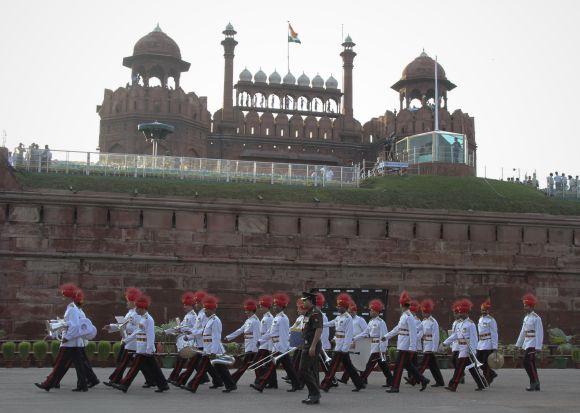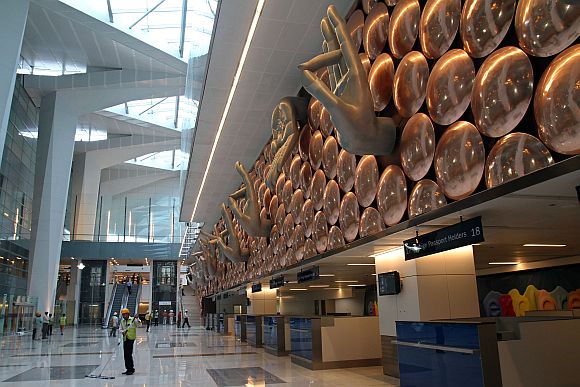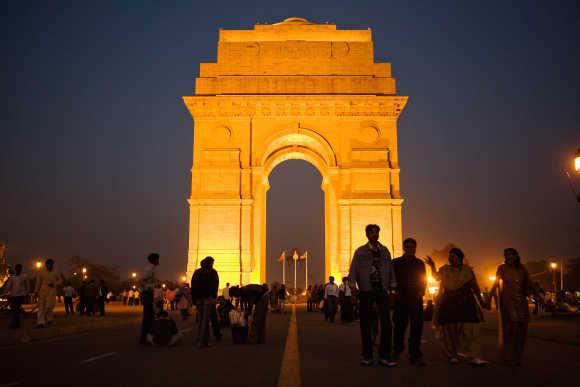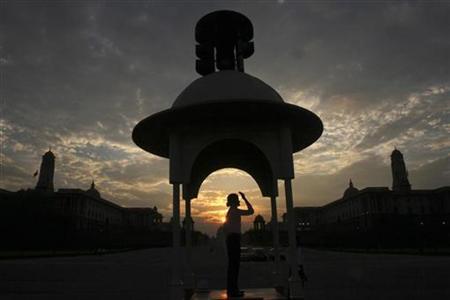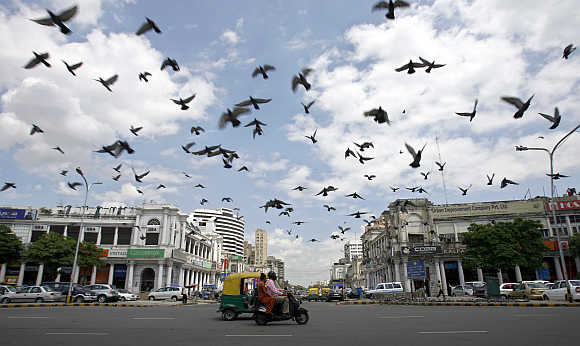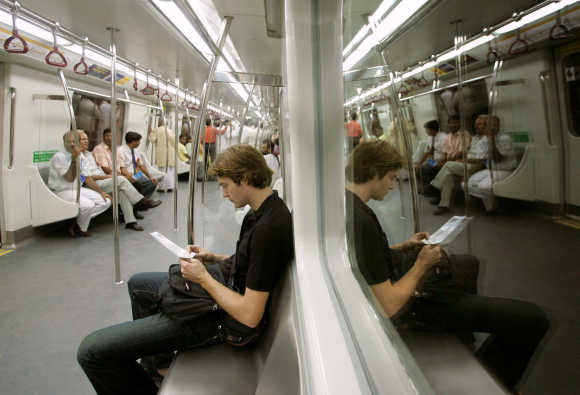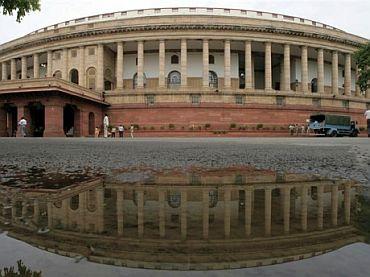 | « Back to article | Print this article |
'Delhi most creative state in India'
The Creative Index Report 2013, launched by the Martin Prosperity Institute, Institute for Competitiveness and The Prosperity Institute of India, has ranked Delhi as the 'most creative state' in India, with the greatest potential for success in today's creative economy.
Incidentally, Delhi happens to be a Union Territory, not a state.
The report analyses India's creative economic assets across its 28 states and seven UTs.
Click NEXT to read further. . .
'Delhi most creative state in India'
The ranking is based on the population of 'creative class'.
This class is of individuals are often engaged in either complex problem solving or in the generation of new ideas, new technology, and new creative content.
Chandigarh, Punjab, Kerala, Goa, Mizoram, Andaman & Nicobar Islands, Puducherry, and Maharashtra round out the top nine. Haryana and Manipur are tied for the 10th position.
Twelve states and UTs have over 20 per cent of their workforce employed in the 'Creative Class'.
Those scoring highest are: Nagaland (35.5 per cent), Arunachal Pradesh (29.5 per cent), Mizoram (29.1 per cent) and Chandigarh (28.2 per cent).
Click NEXT to read further. . .
'Delhi most creative state in India'
The report explores the presence of the 3Ts -- technology, talent and tolerance -- in economic development within each state and union territory in India to measure the capacity of each state and union territory to support creativity-driven economic development strategies.
"Each of the 3Ts is important for economic development and in establishing a robust creative economy, no one T on its own can provide sufficient support to sustain growth and continued prosperity.
Taken together, these 3Ts of economic development combine to produce the 'Creativity Index', a measure of a region's overall creative economy," suggests Kevin Stolarick, Research Director, Martin Prosperity Institute and the lead author of the report.
Click NEXT to read further. . .
'Delhi most creative state in India'
India should recognise the importance of building talent, courting technology and promoting tolerance in gaining an economic advantage, he said.
Such an approach for India would mean recognising the creative talent of its residents in order to develop the businesses and industries of tomorrow; investing in the infrastructure required to mobilise more innovation and economic growth; and recognising the importance of openness and diversity in gaining economic advantage.
Tolerance, the first "T" of economic development, is a quality recognised as essential to objective thinking since the 19th century.
In the Indian context, the Mosaic Index has been used to measure the level of tolerance in a region.
Click NEXT to read further. . .
'Delhi most creative state in India'
In the overall Tolerance Index, the results show that regions in the Far North, Far East, and South West stand out among all Indian states.
More generally, the regions located on or near geo-political borders, major metropolitan areas, and those positioned along the west coast tend to score better on the Tolerance Index than those in central regions and along the east coast, which score poorly.
Talent is the second "T" of economic development. Talented individuals are responsible for generating the innovative ideas that result in newly developed technologies that can stimulate economic growth and prosperity.
Click NEXT to read further. . .
'Delhi most creative state in India'
While incubating talent through investments in employee training and education is important, the regions that can successfully attract and retain talent will ultimately be the most competitive.
Talent is measured as the percentage of a region's workforce that is employed in creative class occupations.
Three composite indexes -- tech connectivity, tech education, and computer access were used to calculate a region's level of technological capability and together, these measures are used to produce what is called the Technology Index.
Click NEXT to read further. . .
'Delhi most creative state in India'
Delhi ranks the highest of all regions followed by Kerala, Mizoram and Karnataka. Similar to the Talent Index, the Tech Index scores appear to be highest in regions with large urban centers and/or strong international economic connections either through trade or tourism.
"Indian states have a rich heritage and culture, but we are simply not able to exploit the possibilities. We need to create some social capital or engagement.
"We need to engage people outside rather than at home to stimulate creativity. What matters in the end is creating cities that enable technology, talent and tolerance whilst using the unique territorial assets," said Amit Kapoor, Honourary Chairman, IFC & Contributing Advisor on the report.
